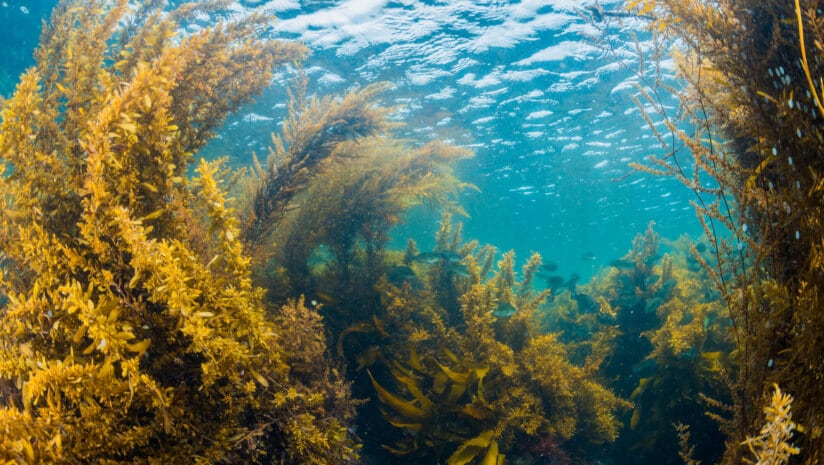The agri-tech company develops biosolutions made from tropical seaweed sourced from local communities around the archipelago.
The startup was launched in March this year and backed by Wavemaker Impact, a Southeast Asia’s climate-tech venture builder.
Speaking to AgTechNavigator at the Asia Pacific Agri-Food Innovation Summit in Singapore from November 4 to 6, founder and CEO Zachary Nice said that seaweed were valuable resource that can not just help boost farming, but tackle climate change.
The company is in the process of scaling production, which will see it go from producing 3,000 litres to 30,000 litres per month.
“We’re looking eventually at export markets. We’re beginning to start conversations in other South East Asian countries,” said Nice.
The company is focusing on severely degraded land, where organic content in the soil is less than 3% and the effects of overusing chemical fertilisers are most pronounced. This represents a substantial market opportunity.
Nice has observed an increased interest in biostimulants as the awareness negative impacts of synthetic fertilisers heightens.
“One of our key findings like as we we’ve at this point had over 700 stakeholder interviews with farmers in Indonesia and Almost 75% of them are aware that they need to move towards more sustainable regenerative solutions. I think they recognise that the overuse of synthetic fertilizer has degraded land.”
Benefits beyond yield
The company’s Kaylix helps to reduce the use of synthetic inputs up to 50 per cent, helping to lower costs for farmers while also boost yields by around 25 to 30 per cent.
This was validated by 42 trials on over 20 crops such as red chillis, tomatoes, orange melon, and bakchoy.
“We’re targeting primarily horticulture at the moment. The main reason for that is that horticulture farmers in Indonesia don’t have access to subsidised fertilisers. So, there’s more pronounced value proposition, compared to a crop like rice, which receives very cheap subsidised fertilisers, making it harder to disincentivise farmers.”
Its trials have also uncovered that the benefits of its seaweed-based biostimulant had effects beyond yield.
“We have internal test plots where we’re trying different fertiliser reductions and application rates. We’re also monitoring the soil as we go. For example, we’re tracking Brix levels—the sugar content in the plants—and we’re seeing very significant increases, as well as improvements in shelf life, which are important for the plant’s overall value. On top of that, we’ve noticed a huge increase in resistance to abiotic stress,” said Nice.
The trials showed that the biostimulant boosted crop stress tolerance by 50 per cent. and increased Brix levels by 23 per cent, while shelf life extended by 72 per cent.
“There’s potentially huge implications in the future for climate change resistant crops. This is just the beginning. These effects we’re seeing is not what we were anticipating,” said Nice.
The company will continue testing its product on more crop types, said Nice.


